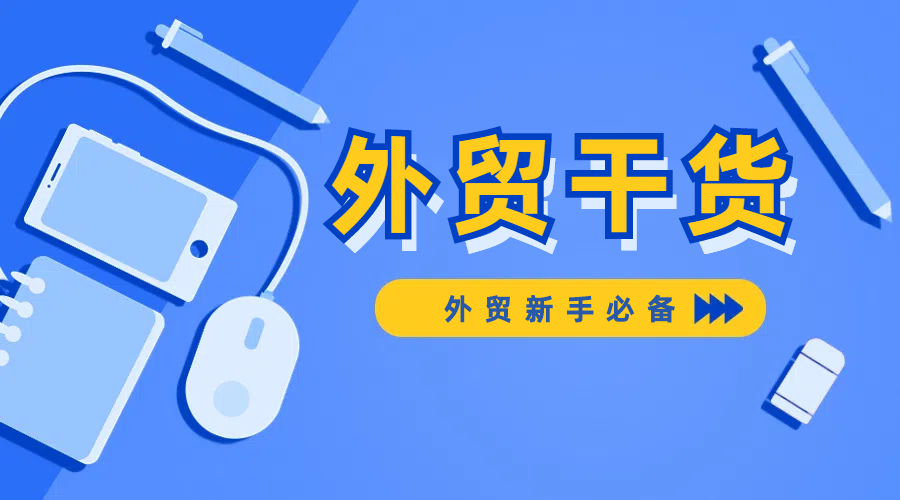 400-076-6558智领未来,外贸超级营销员
400-076-6558智领未来,外贸超级营销员
 400-076-6558智领未来,外贸超级营销员
400-076-6558智领未来,外贸超级营销员

Entering the international trade arena in 2025 demands a comprehensive understanding of a complex, rapidly evolving ecosystem. For global buyers, mastering the entire export-import lifecycle—ranging from client acquisition to after-sales support—is key to gaining a competitive edge. This article unveils essential insights into the full foreign trade process, embedded with cutting-edge technologies and strategic practices designed for newcomers ready to accelerate their global procurement success.
Today's global procurement begins with precision market intelligence. AI-driven platforms analyze vast datasets, enabling buyers to identify high-potential international suppliers and forecast demand trends with over 85% accuracy according to recent industry reports. For example, artificial intelligence tools can filter suppliers by compliance records, production capacity, and sustainability benchmarks, dramatically reducing supplier vetting times from weeks to days.
This proactive approach builds buyer confidence, creating a trust foundation early in the supply chain. Moreover, integrating AI chatbot systems enhances timely and personalized communication with suppliers, further solidifying relationships.
Volatility in international markets requires agile pricing models. Dynamic pricing leverages real-time data on currency exchange rates, raw material costs, and logistics expenses to optimize purchase agreements. Statistics show companies that implement adaptive pricing models reduce procurement costs by up to 12% while maintaining supply stability.
Global buyers should partner with exporters who implement transparent pricing tools to ensure cost predictability and foster mutual trust.
One of the biggest challenges in global procurement is ensuring shipment integrity and on-time delivery. Blockchain technology provides immutable, decentralized records of each logistical step—from factory dispatch to customs clearance—enhancing transparency.
According to supply chain analysts, blockchain-enabled tracking reduces shipment disputes by approximately 40%. It also enables real-time notifications, which empower procurement managers to promptly address delays or anomalies.

The European Union's carbon border adjustment mechanism (CBAM) presents a new layer of complexity, targeting sustainability in imported goods. For global buyers sourcing from heavy-emission industries, compliance with CBAM documentation and carbon footprint reporting is critical to avoid penalties and delays.
Experts recommend early engagement with environmental verification agencies and investing in suppliers who prioritize green manufacturing processes. This strategy not only mitigates risk but also appeals to end customers demanding responsible sourcing.
Flexible and secure payment mechanisms are indispensable in international transactions. Recent breakthroughs in fintech—such as multi-currency wallets, escrow services, and instant cross-border settlements—have shortened payment cycles and curbed fraud risks.
Utilizing platforms that integrate these capabilities increases buyer-supplier trust and optimizes cash flow management, with surveys indicating a 25% uplift in transaction efficiency for users of next-gen payment technologies.
Emerging markets like Southeast Asia and Latin America offer rich sourcing opportunities but demand localization tactics tailored to linguistic, cultural, and regulatory nuances.
Successful buyers collaborate with regional logistics partners to navigate customs requirements and optimize last-mile delivery. For example, in Southeast Asia, adapting product specifications and marketing materials to local preferences has boosted buyer acceptance rates by over 30% in key markets like Indonesia and Vietnam.
Digital platforms specializing in B2B matchmaking and marketing automation are transforming global procurement workflows. AB Buyer (AB客), a leading tool in 2025, helps exporters and buyers streamline lead generation, automate personalized outreach, and analyze market trends.
Employing AB Buyer increases marketing efficiency by more than 40%, according to independent case studies, enabling companies to outpace competitors in customer acquisition and retention.
Global procurement in 2025 is more than transactional; it is a strategic orchestration of technology, compliance, and cultural insight to build resilient supply chains. Buyers who embrace AI-powered customer development, dynamic pricing, blockchain transparency, compliance vigilance, and fintech innovation will secure sustained international success.
Armed with digital tools like AB Buyer and informed by emerging market best practices, newcomers can navigate the foreign trade landscape confidently—turning challenges into opportunities and creating lasting value.
.png?x-oss-process=image/resize,h_100,m_lfit/format,webp)
.png?x-oss-process=image/resize,h_100,m_lfit/format,webp)

.png?x-oss-process=image/resize,h_100,m_lfit/format,webp)
.png?x-oss-process=image/resize,h_100,m_lfit/format,webp)
.png?x-oss-process=image/resize,h_100,m_lfit/format,webp)
.png?x-oss-process=image/resize,h_100,m_lfit/format,webp)
